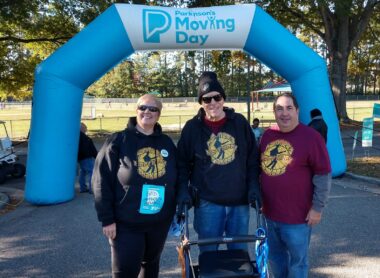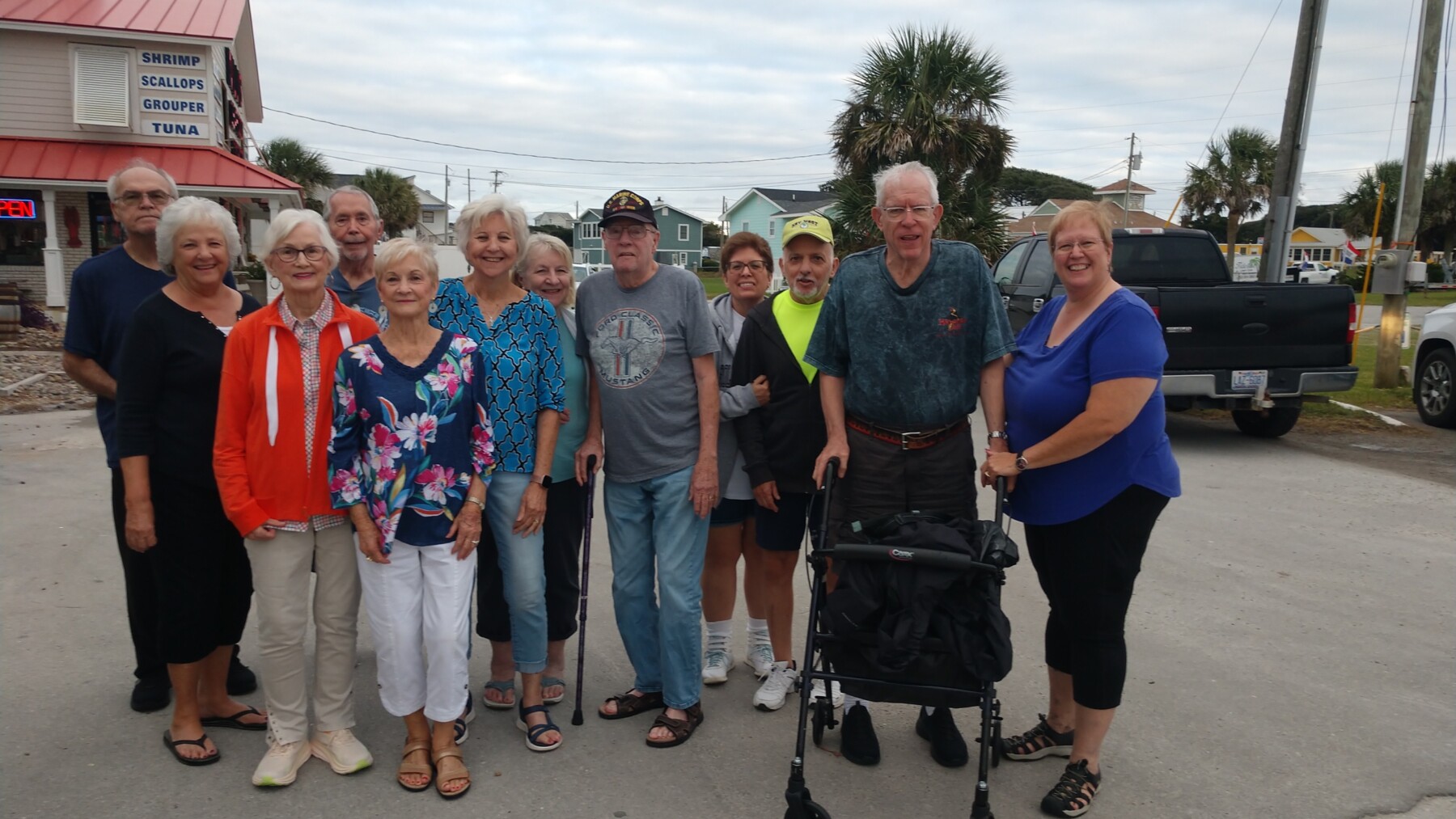Our journey’s silver lining has been the Parkinson’s community
We're filled with gratitude for those who've entered our lives since diagnosis
Written by |

The air rushed out of my lungs, and tears filled my eyes. Eric’s face dropped, and his shoulders slumped. Simultaneously, we’d been gut-punched.
In 2014, 7.2 billion people lived on Earth, but on that April day, we felt as if we’d been plucked out of the world we knew and plopped onto another planet where there were only three people: Eric, my husband; me; and the neurologist who’d just diagnosed him with Parkinson’s.
The neurologist explained that at 53 years old, Eric was just outside the typical age of being diagnosed with early-onset Parkinson’s, the type for people younger than 50. That was little consolation; in my mind, he was still way too young to be diagnosed with the disease. Shaken by this jarring and devastating news, I reached for Eric’s hand. I wanted him to know that we’d get through it together, even if we were the only two people in this new world facing this debilitating condition.

From left, Jill Hammergren, Eric Hammergren, and Tom Gebbia — of the Hammer’s Hippy Hippy Shakers team — gather for the 2023 Moving Day in North Carolina. (Courtesy of Jill Hammergren)
My head swam, and it swirled around one word the neurologist used: progressive. From a societal standard, progressive thinking and ideals often lead to favoring or advocating progress, change, improvements, and reforms, things that tend to get better and more advanced. The opposite is regressive: maintaining the status quo or reverting to a less developed or older state of being, looking backward, going from better to worse.
But the neurologist called Parkinson’s a chronic, progressive disease — meaning that as it advances step by step in scope and severity, it gets worse. We were frightened because we didn’t know what to expect, but as we left the neurologist’s office, I assured Eric that he was not alone.
Initially, we felt it’d be us against Parkinson’s. But the silver lining is that in 10 years, our world has grown tremendously in many ways we never imagined.
Exploring our world
The first time that reality became clear was that November, seven months after Eric’s diagnosis, when we attended our first Moving Day, A Walk for Parkinson’s, created by the Parkinson’s Foundation. We learned about our nearby Moving Day NC Triangle event from a card I picked up at the neurologist’s office. We didn’t know what to expect there, but I was determined that Eric and I would check it out.
Wow! We were overwhelmed to learn that thousands of people in our North Carolina community were connected to Parkinson’s, and we realized that every year, dozens of similar events take place around the country.
The following year, Eric and I came up with a fun name for our team: Hammer’s Hippy Hippy Shakers. Each year, our team increases awareness and raises funds for the foundation. In a month, we’ll attend our 10th Moving Day NC Triangle.
Donating to our team or any Moving Day team connects people in the Parkinson’s community with tremendous resources. These events increase disease awareness and raise funds for Parkinson’s research and programs, which improve quality of life for patients and their care partners.
Our Parkinson’s community grew even more when Eric and I discovered Rock Steady Boxing, a noncontact boxing and exercise program designed specifically for people with the disease. This evidence-based program aims to improve quality of life through exercise, balance, strength, agility, and overall fitness.
Eric and other boxers meet three days a week in organized classes for 90 minutes of intensive, strategic workouts and camaraderie. When they enter the facility, these people aren’t Parkinson’s patients; they’re fighters, and they fight the symptoms of Parkinson’s for themselves and for one another.
Care partners like me also benefit tremendously from the community. I’m so grateful for my care partner friends, who are now like family because we connected through Rock Steady Boxing. We’ve cried and laughed together; shared experiences, knowledge, and resources; and always supported one another. Some of us have even vacationed together!

A gathering of Rock Steady Boxing friends: from left, Al and Dee Laughner, Diane Barbour, Larry Woodall, Betty Hardy, Faye Woodall, Julie and Chris Crisson, Toni and Tony Reverendo, and Eric and Jill Hammergren. (Courtesy of Jill Hammergren)
We’re also part of a great early-onset Parkinson’s support group, even if Eric doesn’t technically fit the profile.
A Parkinson’s diagnosis can be isolating for patients and their care partners. Unfortunately, many people close themselves off from others because they’re embarrassed by their symptoms, such as tremors, freezing episodes, rigidity, falls, speech problems, and cognitive decline.
Eric and I are always amazed at how many wonderful people are now in our lives because of Parkinson’s. Members of our community don’t always advocate for themselves, but I urge all care partners, families, and friends not to let those with Parkinson’s isolate themselves.
There’s no sugarcoating it: Living with Parkinson’s is challenging. Eric even coined the hashtag #PDSUXJFYI. But our lives are also richer and more meaningful, and we’re genuinely blessed to share our Parkinson’s journey and experiences with those who love and care for us.
Note: Parkinson’s News Today is strictly a news and information website about the disease. It does not provide medical advice, diagnosis, or treatment. This content is not intended to be a substitute for professional medical advice, diagnosis, or treatment. Always seek the advice of your physician or another qualified health provider with any questions you may have regarding a medical condition. Never disregard professional medical advice or delay in seeking it because of something you have read on this website. The opinions expressed in this column are not those of Parkinson’s News Today or its parent company, Bionews, and are intended to spark discussion about issues pertaining to Parkinson’s disease.




Ann Zellmer
Jill, thank you for this wonderful article. It was good for me to understand some of your history. We all have our PD story, and yours is inspiring because you found the strength to give to so many people outside your family. Your work with RSB alone has touched so many lives.